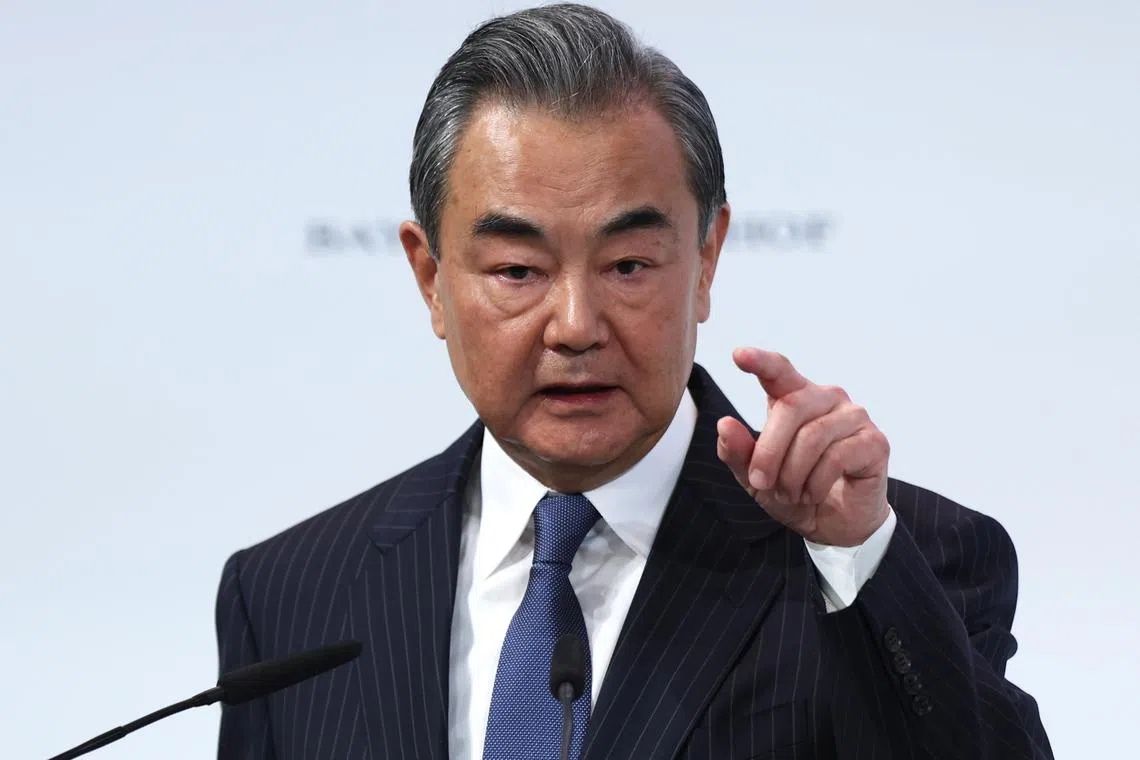China says Russia ties ‘solid as rock’ amid Ukraine peace push
Sign up now: Get insights on Asia's fast-moving developments

China’s top diplomat Wang Yi said relations between China and Russia will stand the trials of the changing international situation.
PHOTO: EPA-EFE
MOSCOW – China’s top diplomat Wang Yi said relations with Russia were “solid as rock” even as Beijing moves to portray itself as a neutral actor that can broker peace in Ukraine.
In a meeting on Tuesday with Russian Security Council secretary Nikolai Patrushev, Mr Wang said China sought to “promote mutually beneficial cooperation in all areas” as the two nations defend national interests. He is set to meet Russian Foreign Minister Sergei Lavrov on Wednesday.
Relations between China and Russia are “solid as rock and will stand the trials of the changing international situation,” Mr Wang said in comments broadcast on Russian state television.
Mr Wang’s visit to Moscow
China has said it will soon release details of a plan to bring peace in Ukraine, a proposal met with scepticism in the United States and Europe.
The Wall Street Journal reported that Chinese President Xi Jinping was preparing to visit Moscow in the coming months to push for multi-party peace talks
A potential visit has been floated for months, with Mr Putin telling Mr Xi during a video call last December that he looked forward to welcoming the Chinese leader to Russia in the spring.
Mr Xi has yet to talk with Ukrainian President Volodymyr Zelensky since the invasion despite speaking with Mr Putin about four times in that span.
Beijing has also repeatedly defended some of Russia’s reasons for going to war – most prominently to resist the expansion of Nato – while insisting it does not support the invasion itself.
While Beijing remains close to Russia, the costs of their partnership have become more apparent of late. Beyond the near-term damage to the global economy, China is also increasingly seen in the US and Europe as a strategic competitor that must be deterred from its own ambitions to take control of Taiwan – a prospect that makes Beijing more vulnerable to multilateral export controls, investment restrictions and other measures that could thwart its long-term growth prospects.
In a phone call with Mr Lavrov in early January, new Chinese Foreign Minister Qin Gang said ties were based on “three nos”: no alliance, no confrontation and no targeting of any third party.
Chinese participants at a security conference in Germany last weekend also sought to downplay the significance of a “no limits” partnership that Mr Xi and Mr Putin agreed to
In Moscow on Tuesday, Mr Wang and Mr Patrushev affirmed that the nations are aligned in pushing back against the US and its allies, pledging to “jointly practise true multilateralism, oppose all forms of unilateral bullying, and promote democracy in international relations and a multi-polar world”. BLOOMBERG


